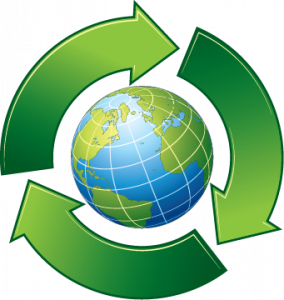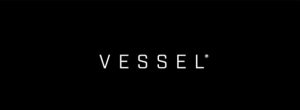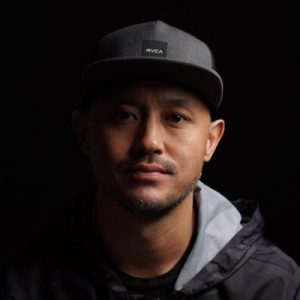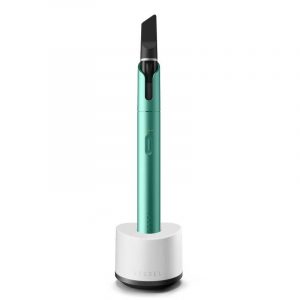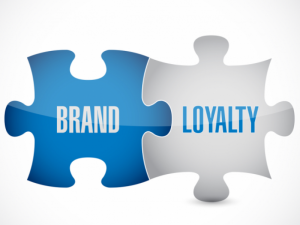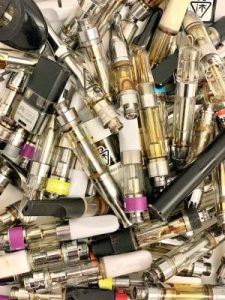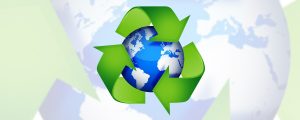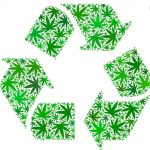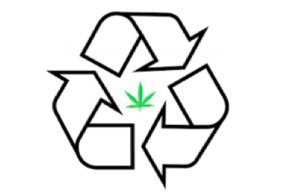If you wish to re-publish this story please do so with following accreditation
AUTHOR: Heather Allman
PUBLISHER: CANNABIS LAW REPORT
VESSEL BRAND LAUNCHES RECYCLING PROGRAM IN PARTNERSHIP WITH GAIACA WASTE REVITALIZATION
New Partnership Addresses Cannabis Vape Industry Waste Issue
Vessel Brand, offering high-end vape pens with premium materials, just launched a new partnership with GAIACA Waste Revitalization in an effort to combat the ongoing waste issue facing the cannabis vape industry.
Key retailers on each coast including Chalice Farms (OR) and Happy Valley (MA) will support the initiative. Full press release here:
By joining forces with GAIACA, a leader in providing compliant and environmentally focused solutions for cannabis waste, Vessel will make it easier for consumers to recycle ALL batteries, not just Vessel’s.
“At Vessel, we are committed to holistic wellness, whether that’s personal wellness, that of the community, or in this case the environment — we believe it is all interconnected and equally important,” said Choe.
Utilizing GAIACA collections services includes:
- Monthly collection of Vape Pen Batteries
- Collection and pre-processing on dispensary premises
- Sleek, locked front-of-house box for secure deposit by consumers
- Back-of-house collection box for dispensary consolidation
Universal waste is then processed through a multi-step high-temperature, high-pressure process that separates the batteries into their component materials. Those materials are separated, collected, and sold for reuse.
“Our mission is to help operators handle and revitalize their waste in an environmentally friendly manner within this highly regulated market, so they can get back to doing what they do best,“ said GAIACA’s Co-Founder and CEO, Jonathan Lee.
Leading the charge in industry sustainability, Vessel’s batteries last nearly 300 charge cycles, and optimized power settings ensure that users don’t burn through oil too quickly, meaning oils last longer and fewer cartridges and batteries end up in the trash.
Vessel’s suite of products is available direct-to-consumer at Vessel and at select retailers across the U.S. and Canada which can be found here.
Apply to become a retailer and join the recycle program here.
In his May 2021 interview with Cannabis Law Report, James Choe, Founder of Vessel, talks about Vessel’s new partnership with Gaiaca, getting cannabis recycling into action, brand loyalty, and plans for the future.
CLR: I am excited about this new partnership that you have going on with Gaiaca. Please introduce yourself and tell us about the company and the origin of Vessel to give our readers some context.
James Choe: I’m James Choe, CEO and Co-Founder of Vessel. The long story short is that my team and I have stuck together through different ventures, companies, and brands over the years, and so some of us have a history of working together for several years even, but we’ve got a lean team.
What caught our attention about this new venture was really the years of prior work that we had been doing. We’ve supported over 100 companies and brands and CPG in nearly every category but pharmaceuticals.
After 100 product launches and successes, there’s a formula that develops, and this formula is really tied directly to designing experiences, more thoughtful experiences, that competing brands or even industries haven’t quite thought about.
It’s a humble formula that we use, and we’ve had a good track record of doing well with making things or ideas or products compelling to the consumer or the audience.
About four years ago, that work that we had done and driven was my previous go-to market consulting firm, and a lot of the work that we did was in brand e-commerce: managing retail globally for the likes of Amazon, you name it.
It caught the attention of some of the key cannabis players in Canada at the time. We put some hefty scopes together, and we had some success.
We engaged in building, in very quick time —about seven months to a year and half, one of the leading brands in California. It came out of nowhere and overtook a lot of the shelves and the dispensaries in the state.
Once again, we stepped back and said, “Look, we’ve got it; it’s just about commodity thinking. This isn’t about the plant and what we can stuff into packaging.”
There were thoughtful executions around how to bridge gaps between budtenders and the consumer, between the retail experience bridging gaps around knowledge within. Who’s going to be an expert on every strain? With the unknown demand, it’s impossible.
We were proud about building a brand, and at that point, we decided to move into Vessel as a full time venture.
Vessel was never designed to be a vape company. We just knew it was the first chapter of where we wanted it to begin because it was a grossly overlooked category that was really dominated by a commodity again: a $15 to $20, or freebie battery.
When so many companies are putting in hard work, claiming the best this the best and these are the best formulations, yet putting it into a very commoditized experience — into cartridge in the battery— we just knew we could do better.
So, 2018 is when we unveiled Vessel. This wasn’t about just meeting a price point in order to say we’re “luxury” or “premium.” Our team knows that premium is not dictated by price at all, it’s dictated by the best that you can do at each price point.
Then it began full-time. We launched with six SKUs to recreate what the battery side of the market could mean, which meant powering your oils differently in style, focusing on better performance, and a better airflow aesthetic. Did you get a chance to look at our line online?
CLR: I have. I love the way you put the sets together with the bases. That’s amazing.
James: You’re one of the few that will recognize that the base charger is kind of our marquee, and it is our number one seller. Despite what you would think would sell well, what the base did was put the cherry on top of the product.
We design brands to earn the opportunities to occupy people’s lives, in their homes, and wherever else that may be. The aim was always to design experiences where they could earn opportunities to live on somebody’s nightstand, or kitchen counter, or on their desktop.
For somebody who’s an avid consumer that depends on cannabis medicine, or just the feeling of well being, we knew it was going to become a fixture.
We had to think past the mundane matters of using certain connectors or USB ports to create an experience that was the most seamless as possible. That’s really how the thinking starts.
Day one, when we started Vessel, we already thought about the numbers, the staggering growth of the industry, the amount of rampant waste that was going to become an issue at some point. With how fast cannabis was growing, a huge waste problem was just a matter of time.
In the beginning, when you’re small and lean, you don’t always have the resources to think about programs like this new revitalization partnership; however, we had it in our sights from day one. We thought that if we’re going to do this industry and do this industry right, there are different ways to mitigate the problem as well.
Today, it’s purely about back-of-house recycling programs that were designed to do great, but on the other side of things, there’s absolute responsibility to think about how to design product more smartly and intelligently on the front end.
As a result, when you look at the evolution that hasn’t taken place with cartridges, batteries, the use of certain materials and finishes, there’s a haphazard approach of tackling it from the front end.
We thought about how we should design it and still innovate, still hack the problems that end up plaguing an industry or the environment forever.
Then, while we’re waiting for that to develop, we looked into other programs —like the one with Gaiaca— and we decided together that we could definitely come up with a way to start to signal that there’s a better way to do things.
We look at it as two-pronged. This isn’t about Vessel. This is not about us pushing our story and taking ownership of it. We didn’t invent recycling, but as a small company, I think it’s a great gesture to such a large industry that recycling matters.
We’re just using our influence —because we do have relationships with many— to just chisel away one door at a time, one regulation at a time, one state at a time. The combination of those efforts over the span of a few years? You’d be surprised at the results. We have to start somewhere.
CLR: The whole story of how you have that two pronged approach plays into your dedication and commitment to the planet, and people, not only profits is intriguing; please elaborate.
James: When you get to the public markets, you’re very beholden to shareholder value and driving top-line growth at all expense and at all costs. Sometimes, things like this ostensibly don’t look like opportunities to win with profit.
We absolutely do it because it hits a nerve with customers in ways they maybe didn’t expect: that one brand has a social belief that there’s a way to do better.
I think there’s absolutely a growing audience and customer base that have values that appreciate our thinking. Customers want to know that their hard-earned money is going to companies with a better position, a different position.
Eventually, that forms another layer of brand loyalty that can’t be overlooked. As an industry, we’re nascent at this stage, but again, if you focus on the customer experience, then it’s not necessarily about profit. It’s about doing things the right way.
CLR: Absolutely. I think what you’re doing is truly forming organic brand loyalty through experience. Through bringing your brand into a customer’s life, by trying to merge lifestyle with cannabis, you’re thinking bigger than the product. As a consumer, I am more drawn to a company that has a positive impact in the world than one that does not.
James: If it aligns with your personal aspirations and certainly your culture, you know this isn’t one of those things you better walk, it is something you sign up to do. Our team stands behind this type of thinking, day in and day out.
We’re a small company, but we’re growing every year. The message that a company like us will even spend our own dollars to recycle other brands’ waste is really what this is about.
It’s a selfless approach, in the sense that there’s already an environmental waste recycling fee built into the cost of the final price tag of consumer goods like electronics.
That’s coming, and it’s only going to come stronger. This involves not only brands industry retail, but also even the state level policymakers, because they’re gonna make mistakes.
I think that’s the hard part: that we’d like to point fingers and blame them that they didn’t get it right, but how are they going to be good mind readers if we’re not the ones voicing this and working with them in partnership.
This is a huge issue. You know when you start multiplying how many cartridges a consumer will go through, or how many batteries in a given year, and multiply that by millions or hundreds of millions and it gets really ugly really quick.
CLR: It does. I have five gallon buckets full of empty vape cartridges.
James: Yes, it’s a huge problem. Think about how long it took to get kids and parents to recycle AA batteries. Mostly, they end up in orange in ziplock baggies, and it’s no big question on what to do with it. Recycle!
This highlights the fact that we’ve been at this for a couple decades now, but just for the recreation of it, if we want to enjoy the planet longer. We just have to be a little more responsible and Jesse says it best —our VP of Marketing who really charged this from day one and she worked at it for about a year and a half: “Just because you can’t fix 100% of the problem doesn’t mean you shouldn’t try to improve it by 1%, 3%, 5%, and so on.”
So at Vessel, doing every bit we can is the most important thing right now. Starting somewhere.
CLR: Tell me about the ongoing partnership with Gaiaca and this fantastic new vape recycling program. You’ll be recycling not just your own brand’s vape cartridges, and I love the variety of options, as far as the collection boxes. You’ve kind of covered front-of-house, back-of-house, vape pens that are yours, vape pens that are not yours —all of it.
How exactly does the recycling work? What is done with them? Are you separating like parts that can be used, or is it just getting rid of the batteries?
James: I’ll be transparent with you, the partnership is new, but from a process standpoint, our job is simple. You know we push the program in with recycling, at the dispensary level where we can.
We’ve had a couple of successful rollouts in Canada, especially, but after that receptacle exercise is done, Gaiaca really takes it from there.
They’re the ones that bring the receptacle in house, start to assess what is absolutely unusable, what is recyclable, and the separation starts to begin —much like waste management would do at that point.
That’s oversimplified, but they are basically reducing every component of that vape pen down to almost a molecular level of material that can either reconstitute, becoming new batteries in recycled form, and/or some of the waste that’s not able to be used is being sold to secondary market tertiary as a brace of materials for other types of product use.
Every bit of it can go somewhere, in terms of re-use and reimplementation into another form.
CLR: I think that it’s excellent that they call themselves a “revitalization” company, not “waste management.” I think that’s a good way to even start the consumer’s mind to thinking of this as a project that they’re involved in, instead of something that’s a requirement or compulsory. Why is this mission important to Vessel — are there complimentary parallels between Vessel and Gaiaca?
James: Yes, there’s a lot of responsibility on the front end to write there’s what we call these Material Safety Data Sheets MSDS reports and labs with your product and your hardware.
There’s a lot of compromised products entering the market from people that don’t care to do those tests and ensure consumer safety.
So everything about how a product is designed, even where air flows through, there’s absolute compliance in terms of all of that execution to ensure that what actually does come out the other end is generally as close to fully recyclable as possible.
One other thing to remember is that when we first approached our manufacturing partner in China, and we’ve had a great run with them, but the President of their company looked at me and said I was crazy when we started this company. Why?
It was because we were the first company, of the hundreds that came to them, to ask them to spend more money on cost per good and per unit to design better products that have better quality components.
They thought we were crazy because the rest of the world was hammering them out for cheaper, cheaper, cheaper. Then we blame factories a lot because they start compromising to get to the price point because that’s all they hear, and the outcome is this non quality product that sometimes is tainted and has issues.
In a lot of ways, we had to set the benchmark with if you want better, you’re gonna have to invest further and create that. I think the thoughtfulness on the inputs of designing better quality products ensures that on the back end, recycling —even our own— there’s more revitalization or reuse that can take place because you’re already starting with a better component batch than you would otherwise.
It all comes together full circle when you start seeing the decisions we made three years ago at Vessel that are currently making initiatives like this one much easier to implement.
CLR: Honestly, that’s an amazing perspective when you look at it. I really didn’t think about it that way, but you’re correct. You’re taking a better component to start with to recycle. You’re not just recycling that cheap vape pen you got for free when you went to the dispensary the first time. You’re actually caring about the device you’re using enough that you want to recycle it.
James: There’s a multitude of ways to solve this problem, to mitigate the problem.
This recycling program is just one solution. How you design a product is number two, and what kind of components used is number three. Again, it’s all aimed at reducing waste a little at a time.
CLR: I can’t applaud Vessel enough for taking that initiative, because you’ve gone into a company and they immediately see that you guys are thinking outside that box they’re used to. By doing that, you’re not looking at this issue from a company level only.
You’re far more involved in the people and the product than you are the profit. You’re also full-circling that back to your distributors, telling them that Vessel is willing to spend more money than the other guy, because Vessel wants a better quality product.
James: It’s a brand strategy for me but it’s also an absolute cultural strategy: having people think differently is a very difficult thing to do. You’re going to feel like the minority, on an island alone when you first start anything new and different will have that ripple effect.
Believe it in enough, though, and echo it every chance you get, and there’s always the moments —when you least expect them— when people get to sit back and pause and really think about their place in the industry.
That point is when it settles in, and you’re thankful you have that conversation, whether it was a day or a month ago. It’s like playing back the favorite chorus in your music; it’ll just hit you when it hits you.
So pushing the agenda of recycling forcefully will never yield the type of results you want. You want it to be organic, you want people to appreciate it because they’re seeing it make a change.
Honestly, at retail when you see the amount of product that flows out, including wasteful packaging, and examine the bad habits that CPG has taught, you realize that we’ve supported these wasteful industries for years.
Now, we’re making active moves to reduce waste across all lines. It’s not just the vape story, it’s this whole notion and antiquated thinking that mirroring Apple packaging or whoever it may be… while it did great for retail, look what happened during COVID. Retail wasn’t even a factor anymore.
It was really neat to see an e-commerce boon, which meant you didn’t see or touch the product anymore until it landed in your hands, so I think this last year has really highlighted that there’s a paradigm shift to where consumers are valuing things slightly differently.
The kaleidoscope is turned and now we all want to see things and value things slightly differently than before. Some of these things will be highlights that people will grab onto, hopefully recycling first and foremost.
CLR: I feel the same way as what you’re saying: that you feel a responsibility if you’re consuming this product to be giving it back to the companies who can revitalize it, reuse it, repurpose it, instead of just turning it into more consumer waste.
James: Absolutely.
CLR: Tell me more about the issue at hand, regarding cannabis waste and vapes. You’re right: if we don’t start now, it’s going to be even more of a problem. The packaging is already almost out of control.
James: Yeah, there’s one example. We have a very sheep-herd kind of mentality in most industries, and in this one, it’s just more obvious to see because there’s limits to the assortment of solutions for brands and MSOs to grab onto.
That’s what happened with cannabis flower. At first, everybody’s flower was in mylar pouches, then somebody decided “we want to be premium” so they moved to jars for flower packaging. What ends up happening is every brand that thinks they’re premium feels that they need to be in glass jars now.
I distinctly remember that when we built the premium brand that didn’t use jars, how many emails were pouring in from customers saying thank you for not doing jars because I have 50 of them and I don’t know what to do with them and they’re bulky and they weigh a ton…. It’s a problem.
I suspect that those types of emails will come in now with this program, and it comes down to, again, the fact that culturally, companies aren’t listening to the consumers.
It’s not always about trying to be everything to everybody, but there’s a segment of a story and how you execute and take things to market that should all be more sensitive to pocket-by-pocket and state-by-state.
For us at Vessel, that’s the mentality: that you’re never gonna find one solution that gratifies everybody’s needs, so focus on the things where people do resonate —those are the wins.
Outside of that, we’re just really early on this issue, but it looks like there’s a strong appetite for us to work in the lobbying space with the policymakers and create formalities internally.
Again, as a small company, we probably don’t always have the resources, but we’re going to do our damn best. We’ve aligned with groups like Gaiaca, and even lobbyists that have had success in states like Colorado in charging other areas around the country, so it’s a new arena.
I’m not saying that I’m a seasoned political guy, but I think that getting our feet wet and learning the temperature of how those waters think and operate, is only going to help us get better and to plan for a better future.
CLR: As you said earlier, that’s going to help you create that synergy you need to help bridge those gaps between the policymakers and the operators, and the consumers too, for that matter. I think that if you can, please get into states like Florida, where we’re up to over 500,000 medical patients now. We’re the third biggest state in the country in cannabis sales and we don’t even have recreational cannabis yet.
James: I think recreational or adult-use is right around the corner for Florida, and for some other states. We are always looking at new, open markets.
CLR: Surely and slowly is what I keep saying; it’s simply on its own time frame now.
James: Look, 70% of the population is east of the Mississippi, from what I still understand, so California and the West Coast states are out here on our own little island. However, where the numbers are going to move is everywhere in your direction. There’s a bit of focusing our attention at Vessel on that side of the country, for sure.
CLR: I think you nailed it when you said that COVID has really changed consumer behavior period, because now companies are thinking about brand loyalty, if nothing else, even if they’re not thinking about recycling. They’re thinking about how to keep their consumers.
James: It’s a misnomer that brands today still mean logos on boxes, but the way our team thinks has always been on the intangibles. It’s the stuff you can’t touch and see. It makes people recognize a brand.
That’s why they talk so much about the emotional connection that occurs when you see something, when you remember something, or when you’ve learned something that you can attribute that to whoever we learned it from.
So, that’s now the correlation — if you focus on designing experiences and not things, those are the things that connect people to ideas. Enough connection to ideas will create that culture-type of expansion, that thinking about why it’s important.
Cannabis is a nascent industry. There’s a lot of people who haven’t done this for their careers, and so they’re learning and building the car as it’s rolling, and that’s totally okay.
CLR: I agree. I think that we have the ability to build this cannabis car however we want to.
James: Right, absolutely.
CLR: Thank you so much for your time, James, and I will be back in touch as I really am interested in tracking the progress of how this partnership expands.
James: Thank you Heather. Just know that we’re thinking about the same type of recycling and revitalization programs for dry herb/flower too.
This is going to be the red thread through everything we do, from the type of design materials we use, to the products that we end up creating, we here at Vessel truly want to have some responsibility and consciousness to it, to our consumers, and to the planet.
Stay tuned to our Karma Koala podcast for the full interview with James Choe from Vessel.
ABOUT VESSEL BRAND:
Headquartered in Carlsbad, California, Vessel is a community-led company that uplifts the cannabis consumption experience with its luxury accessories including a high-end line of vape pen batteries made with premium materials and finishes. Vessel bases its principles on what matters most: the people and the planet – not solely profits. Thoughtfully designed with the user experience in mind, Vessel batteries power any oil in style with details including optimized airflow technology, low-temperature settings and extra-long battery life.
ABOUT GAIACA WASTE REVITALIZATION:
Founded in 2016 by Monterey Peninsula natives Jonathan Lee and Garrett Rodewald, GAIACA began with a mission to create a sustainable solution for the quickly growing cannabis waste concern in California. The nation’s first fully licensed cannabis waste management company, GAIACA has since become the industry leader in fully sustainable and compliant waste management solutions. Offering services nationwide, GAIACA is available to address and handle any hazardous or non-hazardous waste stream generated by cannabis operators large and small.

